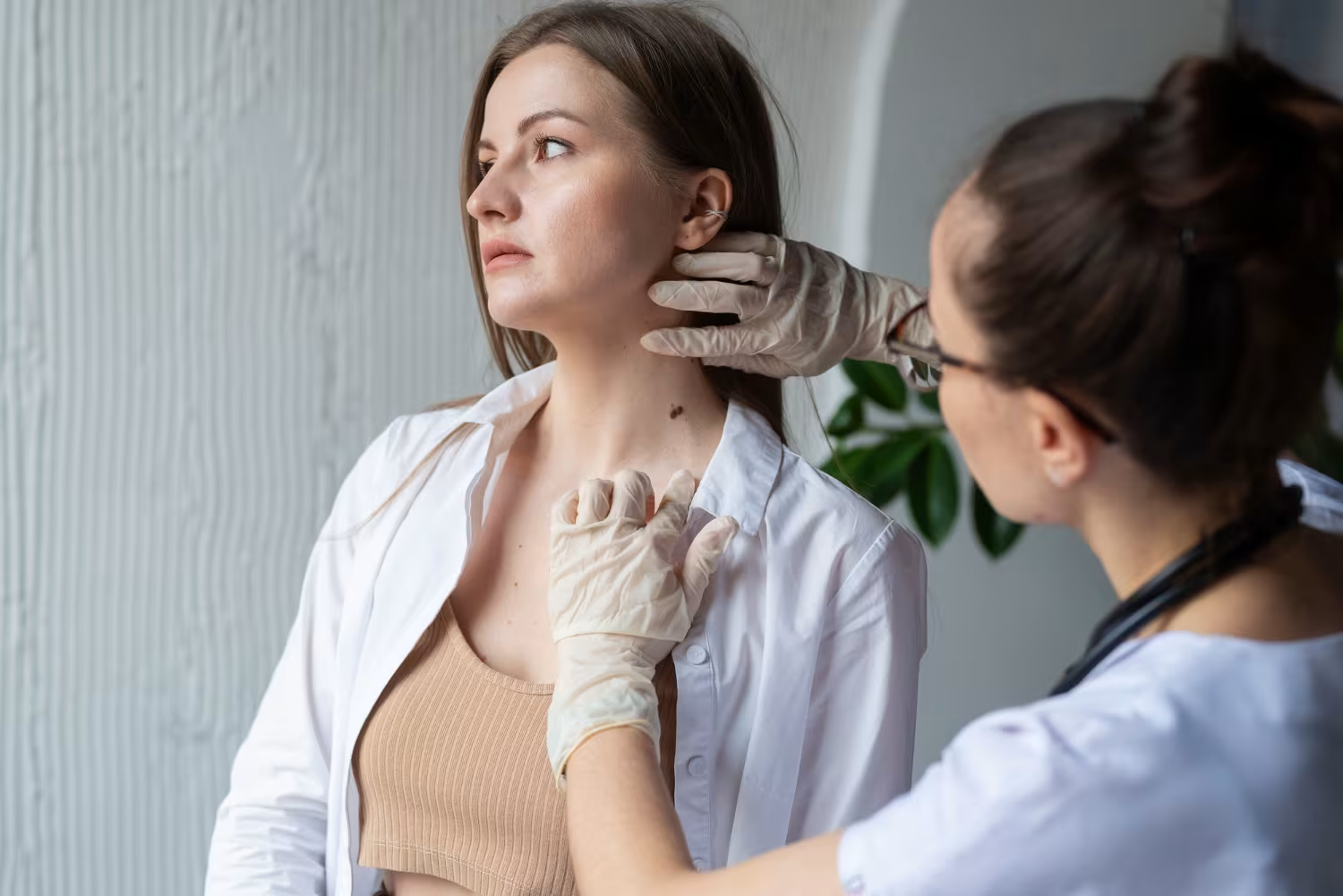
Skin cancer is one of the most common types of cancer in the UK, but it’s also one of the most treatable—if caught early. That’s why recognising the signs, understanding what causes it, and knowing when to see a doctor is absolutely crucial.
In this blog, we’ll walk you through everything you need to know about skin cancer symptoms, causes, diagnosis, and what you can do to stay one step ahead.
Skin cancer happens when the cells in your skin grow abnormally. Usually, this is caused by damage from ultraviolet (UV) light, either from the sun or tanning beds. Over time, that damage builds up and can lead to changes in your skin that turn cancerous.
There are three main types of skin cancer:
So, how can you detect skin cancer? The symptoms can vary depending on the type, but there are some key things to keep an eye on.
Yes, sometimes it does. Itchiness, along with bleeding or pain, can be early warning signs—especially if they last longer than a few weeks.
You might wonder, what causes skin cancer in the first place?
sunbedsNot all cases are caused by sun exposure. Skin cancer can also develop in places that don’t see much sun, such as the genitals, soles of the feet, or under fingernails—especially in people with darker skin tones.
Some types, like basal cell carcinoma, grow slowly over months or years.
Melanoma, however, can spread within weeks if left untreated. It’s why early detection is key—and why regular skin checks are so important.
When you visit your GP with a suspicious spot or mole, here’s what usually happens:
The doctor examines the skin growth using a dermatoscope (a specialised magnifying tool). They’ll ask about how long it’s been there, if it’s changed, and if you’ve noticed any symptoms like pain or itching.
If needed, a small sample of the skin is taken and sent to a lab for testing.
If the results show cancer, further scans or tests may be recommended to check if it’s spread.
The good news is that most skin cancers can be completely removed, especially if caught early.
Treatments include:
Your treatment will depend on the type, location, and stage of your cancer.
Unfortunately, yes. If left untreated, melanoma in particular can be fatal. But most cases of skin cancer are completely treatable when caught early.
That’s why we always advise checking your skin regularly and seeing a GP promptly if anything looks or feels odd.
Most skin tags are harmless, but in rare cases, they can develop into cancerous lesions. If a skin tag changes quickly, grows, or bleeds, get it checked.
Yes. Skin cancer can itch, sting, or cause a burning sensation. It might also bleed or form a crust.
Look for any new or changing moles, lumps, or patches. Use the ABCDE rule:
Take photos to track changes and use a mirror for hard-to-see areas—or ask a friend to help.
You can book a same-day consultation with one of our experienced Private GPs who can perform an initial assessment and arrange referrals if needed.
Check our Private GP Consultation Costs
Your skin is your body’s largest organ—and it deserves attention. Whether it’s an unusual mole, an itchy patch, or a sore that won’t heal, don’t ignore it. Early action saves lives.
If you’re worried about anything on your skin, we’re here to help.
Book an appointment at Private Medical Clinic





